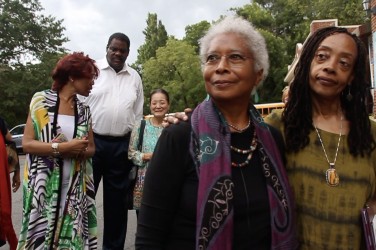You must be thin, petite and light-skinned with long, black hair and big, round eyes. You must be quiet, small and submissive. Those were the traits Esther Lim, 25 from Suwanee, Georgia, grew up hearing—that’s how they were expected to look and act.
“You basically [have to] look like a porcelain doll,” Lim said.
This idea of a porcelain doll is familiar to others born female and raised in East Asian immigrant households.
Why It’s Newsworthy: Asian Americans comprise a growing portion of the population. Many come from an immigrant household and understanding the dynamic between first- and second-generation immigrants is important in understanding the people in the community.
Dressing up and looking pretty was important. Christina Somphone, 24 from Suwanee, Georgia, was raised by a mother who urged her to dress up and wear makeup to impress men.
‘Do it for a man,’ she said,” Christina Somphone said.
“There are notions of gentle femininity [within East Asian culture]. You basically look like a porcelain doll. There’s [also] what comes from Confucian notions of what it means to be a woman,” Lim said.
Much of Eastern Asian traditions and values are rooted in Confucian teachings. Under its philosophy, people are not characterized by their individuality but by the kinds of relationships they are a part of. Society is ruled by these relationships, and people must uphold the ethical rules that are explicitly stated and implied within the context of these relations.
In Confucianism, women must obey their father, husband and sons. Confucius believed that society could only be supported by a patriarchal family system.
Sharon Oh, 29, from Atlanta, said, “Male figures had more importance. My brothers had more leniency growing up.” Oh’s brothers could make mistakes and weren’t faced with immediate judgment, something that didn’t hold true for her.
Lim experienced similar differences between herself and her brother.
“My brother switched his major [several] times and got into trouble frequently, but they still had a lot of hope for him as an engineer and [for] his career,” Lim said. Lim didn’t receive the same treatment or expectations.
…he was able to move through the world [in a way] I tried to myself and was struggling to,” Esther Lim said.
Confucianism holds that women must be chaste and maintain a pleasant demeanor and be domestic. Because Confucius believed society was supposed to be centered around a patriarchy, it was a woman’s duty to support her husband.
“In Korea, there is an archetype called the good wife,” Lim said. “[These women] let their family thrive at their own expense, without saying a word. Those were the notions of womanhood that I grew up in.”
Yet, while Lim and Oh were raised to believe that a woman should adhere to these ideals, the women in their lives didn’t. These women, acting outside of the standards, empowered Lim and Oh.
As a child, Lim watched her mother keep their family together and afloat, away from bankruptcy.
“She isn’t a stereotypical Asian woman. [She’s] very loud and aggressive. She has a lot of fire,” Lim said. “Watching that growing up both inspired me and embarrassed me. A part of me thought ‘why can’t she be like other Korean moms?’ I [later] found myself resisting the same norms that she did.”
When her family immigrated to the United States, Oh’s father wasn’t with them, so she watched her mother work to support her family. Oh witnessed female empowerment, learning the importance of women, despite the ideas of female inferiority she was raised on.
Still, there are remnants of traditional values that are hard to shake. Somphone points out the difficulties of the older generation’s willingness to change.
“Because my parents came from a different culture, it’s very difficult for older generations to change. So now, it’s up to us to change things for the younger generation,” Somphone said.
Yekaterina Ko is a senior majoring in journalism at the Grady College of Journalism and Mass Communication at the University of Georgia.








Show Comments (0)